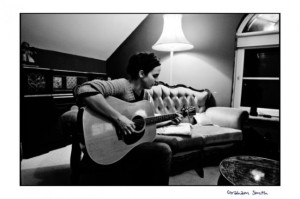Hi folks. This is a quick summary of the discussion at our first Feminist Forum event, exploring LGBT issues.
Orlaith Hendron (LASI) talked about her personal experience of connecting with feminism from a young age when she saw inequality all around her. In her current role supporting groups of lesbian women with LASI she sees that most of those women don’t want to be associated with feminism for a range of reasons. There has been a history of excluding lesbians from the feminist movement, something which she feels reinforced rather than challenging patriarchy. Even for younger women who don’t have the experiences of what happened during those earlier years of feminism, many don’t feel welcome in feminist spaces. For example, women’s centres don’t feel like they are welcoming to lesbians and many struggle to get involved in groups held there. She really welcomes any attempt to overcome this issue of exclusion as she is aware that her gender identity is just as important to her as her identity as a lesbian…”I was a woman before I was a lesbian.”
Ruth McCarthy (Outburst) has been engaged in both feminist and queer activism since the age of 16, and is largely interested in cultural activism through the creation of positive alternatives and open expression. She reflected that her start as a feminist pre-dated the development of academic feminism and was therefore very grassroots. She found that in these grassroots networks lesbian women were not just welcome but were integral to the whole movement. She suggested that some of the exclusion Orlaith described may have emerged as the feminist movement formalised and acquired a “respectibility” that many lesbian women felt they couldn’t connect with. Ruth commented that when she came out she noticed the gay men in the LGBT movement tended to be wealthy, conservative with no education about feminism and therefore not very engaged. She also commented on the fact that homophobia is rooted in misogyny. She discussed “queer” which she really embraces, finding it to be a strong statement about a person’s politics and a celebration of who you are.
Harriet Long (The Rainbow Project) described her advocacy work in the area of violence against LGBT people. She considers “violence” in this case to be any form of oppression. She has found a number of academic analyses very helfpul as she approaches this work as there is a need to try and deconstruct the power structures and the thinking that sustains that oppression. She is particularly interested in the distortion of feminism in the public discourse and finds that really upsetting as she loves feminism and the radical democratic discourse that it actually represents. She believes it is important to engage with the theological world as much of the oppression faced by women and LGBT people is sustained by the thinking and tradition that the religious establishment espouses. Rather than ignore this, Harriet seeks out ways to understand and then challenge it.
This summary just covers the opening contributions from our speakers. There was so much more that we discussed but as the conversation got going, my ability to make notes fizzled out! I do know that we talked about the comibined impact of gender and class and the need to make feminism relevant to women in areas of social deprivation. We talked alot about what queer means to different people and the opportunities this concept has for finding a common identifier for all people who find prescribed gender and sexuality roles restrictive. We discussed the fact that in the LGBT movement, the “G” is often the driving force and the other groups represented there can find their voices are less important – feminism can help to challenge this. We talked about the idea of “checking your privilege” and agreed that while there are differences in our experiences that need to be acknowledged, there should be no hierarchy of the oppressed people – it’s hard enough being a woman without dividing among ourselves. We talked about sex…a lot. We wanted to talk about it more as it is a vital part of our ongoing liberation, so we suggested we’d create more space to do that another time. And we talked about welcome, about making it clear and overt and ensuring our representations of our communities reflect the diversity that exists within them. That’s when Ruth used the brilliant phrase, “I shouldn’t have to go looking for myself all the time” and within it was a challenge for all of us as women that we deserve to be visible. The patriarchy has been determined over the years to prevent that and we have fought it. We also have a responsibility to make sure no one within our own sisterhood is made to feel invisible.
It was a fantastic night and I’d love to hear your own reflections on it in the comments below.
Kellie
 of Argentinian wine and some fine tunes.
of Argentinian wine and some fine tunes.